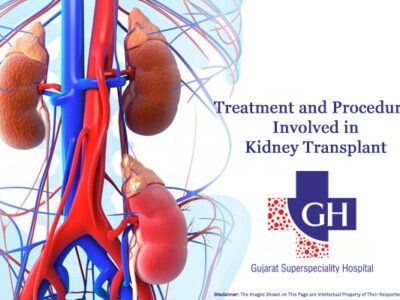Any kidney disease can affect the body’s ability to clean and purify blood, filter extra water, help control blood pressure. It also affects other functions like vitamin D metabolism that is needed for bone health and red blood cell production. When the kidneys get damaged waste products and fluid can build up in the body. This can cause swelling in ankles (pedal edema), weakness, urinary tract infection, poor sleep and shortness of breath.

Types of Kidney Disease
Chronic kidney disease- it is a condition where the kidneys cannot filter toxins or extra fluid from the blood. It is also called chronic kidney failure. In the early stages of chronic kidney disease, there might be few signs and symptoms. The signs and symptoms develop over time if the kidney damage progresses slowly. The symptoms include nausea, vomiting, loss of appetite, fatigue, sleep issues, muscle cramps, swelling in feet and ankles, dry and itchy skin, high blood pressure and urination issues. The factors that increase the risk of chronic kidney disease are diabetes, obesity, high blood pressure, smoking, cardiovascular condition, family history of kidney disease, age and frequent use of medications that damage the kidney. The complications associated with chronic kidney disease include fluid retention (swelling to arms and legs, increased blood pressure, or fluid in lungs), hyperkalemia, anemia, heart disease, weak bones, pericarditis, decreased immune response, damage to the central nervous system.
Polycystic kidney disease- this is a genetic disorder that causes cysts that are fluid filled sacs which grows on the kidneys, limiting their ability to filter waste from blood. The symptoms include back or side pain, blood in urine, high blood pressure, increased size of abdomen, headaches, kidney stones, urinary tract infections. The complications include chronic pain, loss of kidney function, high blood pressure, growth of cysts in liver, heart valve abnormalities and colon issues.
Lupus nephritis- it is an autoimmune disease, that means the immune system attacks the healthy cells. In lupus nephritis the immune system attacks the kidneys. The symptoms of lupus nephritis may include foamy urine and edema- swelling that occurs when excessive fluid retention occurs. Other symptoms may include joint pain or swelling, muscle pain, fever and red rashes. The most severe form of lupus nephritis can cause scars to form in kidneys. Risk factors associated include male gender and race or ethnicity. The complications include hypertension, kidney failure, higher risk of cancers and heart vessel problems.
Interstitial nephritis- this condition occurs when one has a adverse reaction to a particular medicine that limits the kidney’s ability to filter toxins. In this condition swelling is present in between the kidney tubules. The most common symptom of interstitial nephritis is decrease in the amount of urine. Other symptoms include fever, blood in urine, fatigue, nausea, vomiting, swelling and weigh gain due to water retention.
Glomerulonephritis- also called the glomerular disease. Glomeruli are the thousands of tiny filters that remove waste from the blood passing in the kidneys. This condition damages the glomeruli and the kidneys cannot function efficiently. Inflammation in the glomeruli can happen after some infection as well. The signs and symptoms include blood in urine, foamy urine due to excess protein, high blood pressure, fluid retention, muscle cramps, nausea and vomiting. The complications include accumulation of wastes or toxins, loss of red blood cells and loss of proteins.
Pyelonephritis- it is a urinary tract infection within the kidneys, which can result in scarring as the infection heals. The symptoms include fever, pain in the abdomen, back, side or groin, burning sensation while urination, cloudy urine, frequent urination, fishy- smelling urine, pus or blood in urine, nausea and vomiting.
When To See A Doctor
Early detection might prevent kidney disease from progressing to kidney failures. It is important to consult a urologist or specialists like Dr. Pragnesh Bharpoda at Gujarat Kidney Hospital one of the best kidney hospital at Vadodara.

